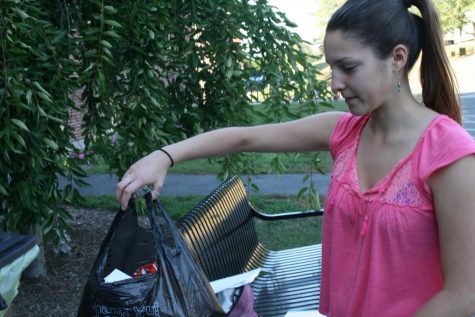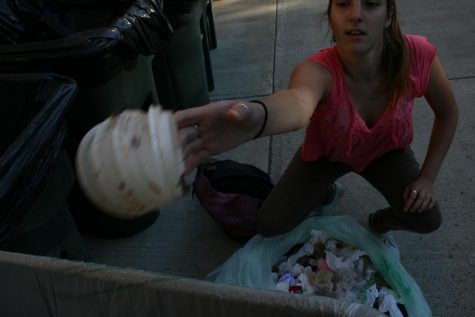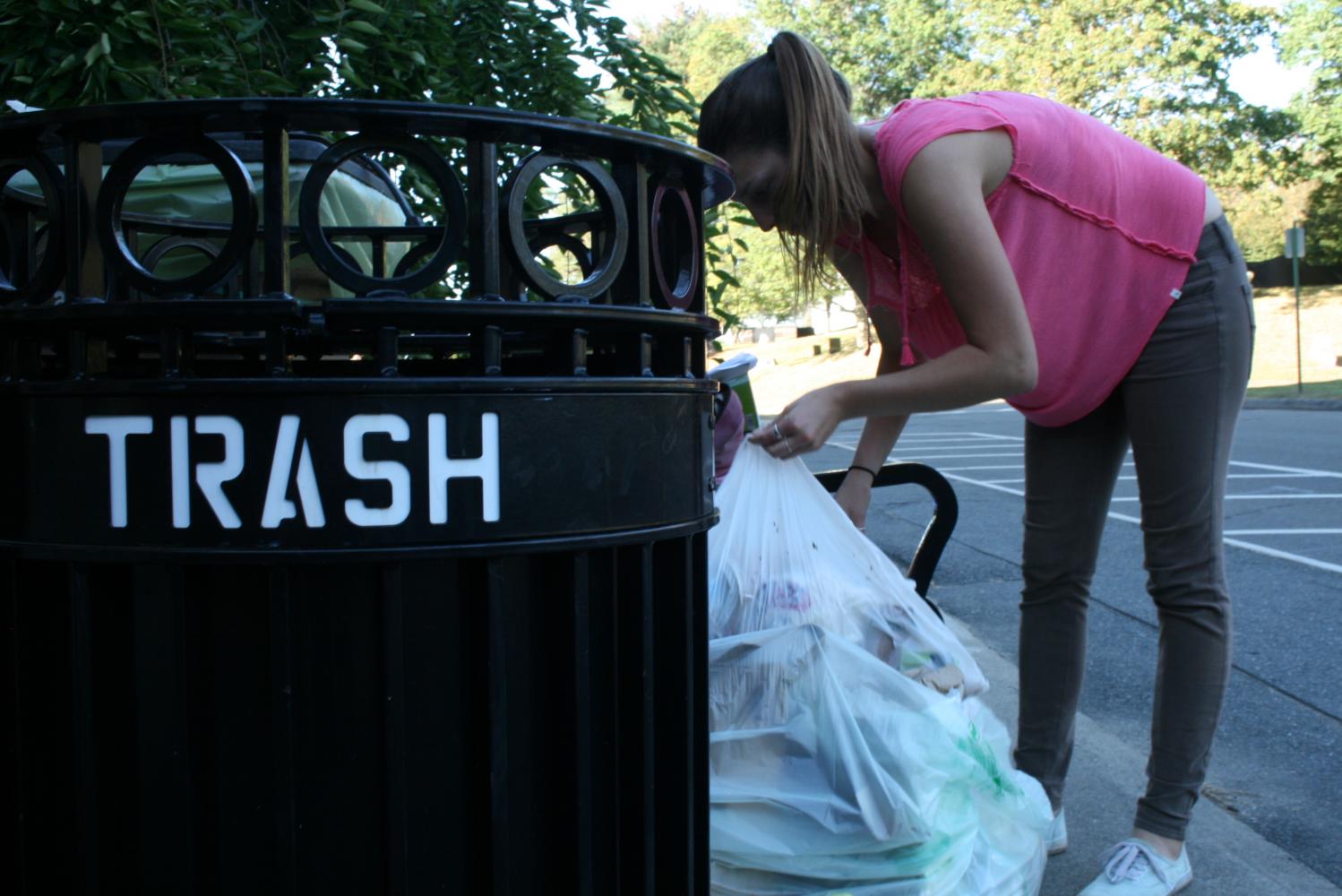Students lead composting initiative
October 13, 2017
AMHERST — Picking out one piece of trash at a time with bare hands, student volunteers for the Van Meter/Butterfield Compost Extension Program have helped play a part in making the University of Massachusetts Amherst one of the top 50 most sustainable colleges in the U.S. by the Princeton Review.
The program was started by sophomores and former Van Meter Hall residents Timmy Sullivan and Alexia Perides. Sullivan lives in Butterfield Hall and is the campaign and advocacy coordinator for the Center for Education Policy Advocacy. Perides works with Student Government Association Secretary of Sustainability Ainsley Brosnan-Smith as an undersecretary.
The program was a spin-off of the Campus Compost Pilot Program spearheaded last year by Brosnan-Smith.
The pilot program, which consists of five compost bins scattered outside between Whitmore Building and Blue Wall, was the first outside compost program to have ever been implemented on campus.
The beige-colored bins outside Van Meter and Butterfield Halls are just a few inches taller than the metal trash bins that they are locked and chained to. The bins are accessorized with the word “compost” and sit on two wheels. To top them off, signs on the lids spell out which materials should go inside.
The pick-up of the residence hall bins was originally student-run but was transferred to the UMass Office of Waste Management.
According to Brosnan-Smith, the Office of Waste Management considers the program a success.
Sullivan, Perides and other student volunteers are responsible for the collection and sorting process of the two bins that are just a few steps outside the doors of Van Meter and Butterfield. To them, the job can feel both rewarding and disgusting at times.
“We were getting frustrated seeing a lot of compostable items being thrown in the trash,” said Sullivan. He noticed many students would bring “Grab ‘n’ Go” lunches, to-go cups, and Blue Wall containers back to their dorms and had no convenient way to compost them.
Cleaned out twice a week, the Van Meter and Butterfield bins can contain anything from the compostable materials student volunteers are looking for, to other items that don’t belong such as beer cans and even plastic bags filled with someone’s entire week of dorm room trash.

When non-compostable trash and recyclable items are thrown into compost bins, they are considered to be contaminating the bin and must be taken out before they are collected by waste management. The items must be individually picked out and thrown in the proper bin, which is where Perides and Sullivan come in.
“I’ve taken condoms out of there before. It gets gross,” Sullivan said. ”Some of it you’re just confused. Other stuff is just nasty.”
Once the sorting process is completed, the non-compostable items that were found in the compost bin are recorded in a log to keep track of which items are most prevalent.
The remaining compost is brought down to Greeno Sub Shop’s compost bin, where it is picked up by waste management. The compost is then delivered to Martin’s Farm in Greenfield where it can be processed.
According to Sullivan, if the bins are not properly sorted out, waste management may stop collecting them — essentially suspending the program.
The sorting process doesn’t always go smoothly. During a cleanout last Tuesday, Perides found more trash than compost. Faced with a bin almost three-quarters full, only a small proportion of what was thrown in was actually compostable.

In these disappointing moments, Perides said she can feel discouraged.
“I sometimes feel like a fish trying to swim upstream. It feels isolating,” Perides said.
She compares the situation to a story about a hummingbird that tries its best to put out a forest fire. Using its small beak, the hummingbird goes back and forth carrying water to the fire, all while the other animals question its efforts. The hummingbird’s only response to the other animals is, “It’s the best I can do.”
“The waste being diverted will not be the sole solution to climate change, but it’s one thing I can do,” Perides said, comparing her efforts to the hummingbird’s.
According to Brosnan-Smith, the lack of education on what composting is, what is compostable and what can’t be composted is one of the main challenges and setbacks for the program and its expansion.
This lack of education and the prevention of the program’s expansion are becoming a waste of money for UMass, Sullivan said.
“The university is spending all this money because the compostable items are more expensive than regular plastics,” said Sullivan. “For students to be using compostable (items) and throwing them away is effectively a waste.”
For composting to proceed at UMass, Sullivan believes that UMass and waste management must play a greater role in the composting project. This includes, he said, the university giving students better access to compost bins and shifting the oversight of bins outside residence halls to waste management.
While UMass is already ranked in the top 50 most sustainable colleges in the U.S., Brosnan-Smith sees the ranking as something the campus can still improve on.
“It makes us seem like we’re being extremely sustainable — and yes we are — the sad thing is compared to other campuses we’re doing really well but compared to this standard for sustainability we’re not really doing that well,” said Brosnan-Smith.
As for now, though, every piece of trash picked out by the hummingbirds of the Van Meter/ Butterfield Compost Extension Program act as droplets of water that are being sprinkled on the forest fire.
Email Brian at [email protected].
